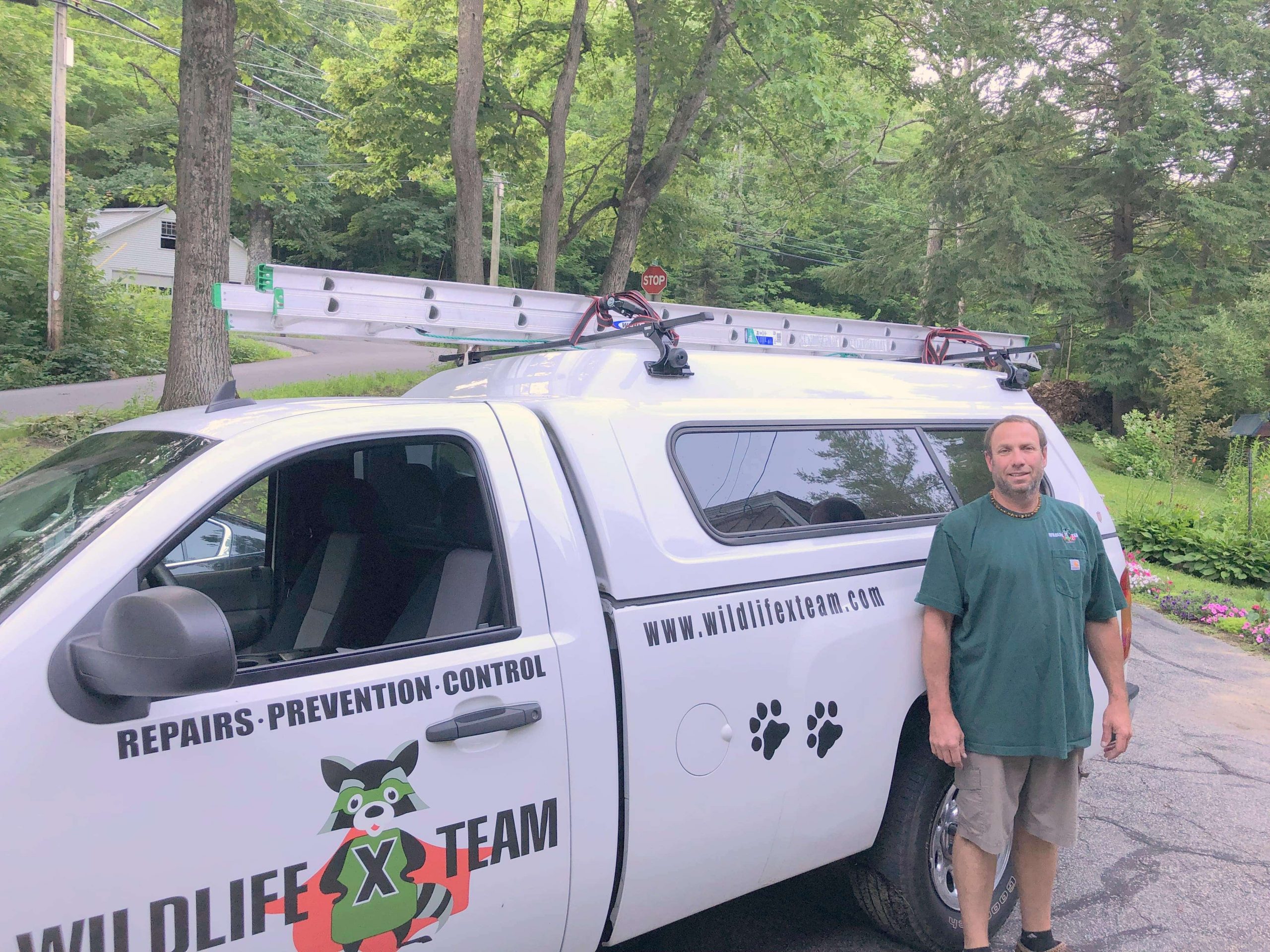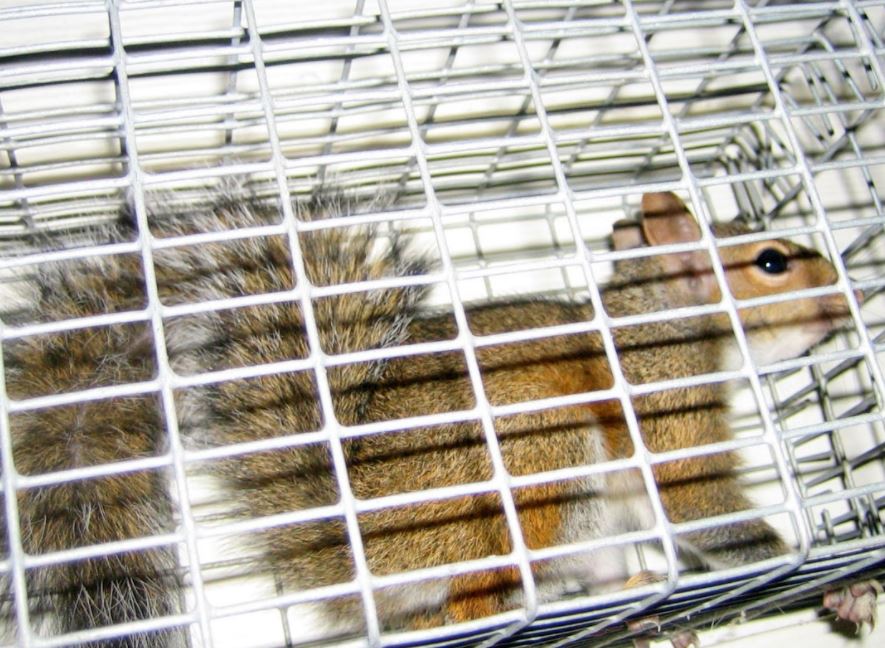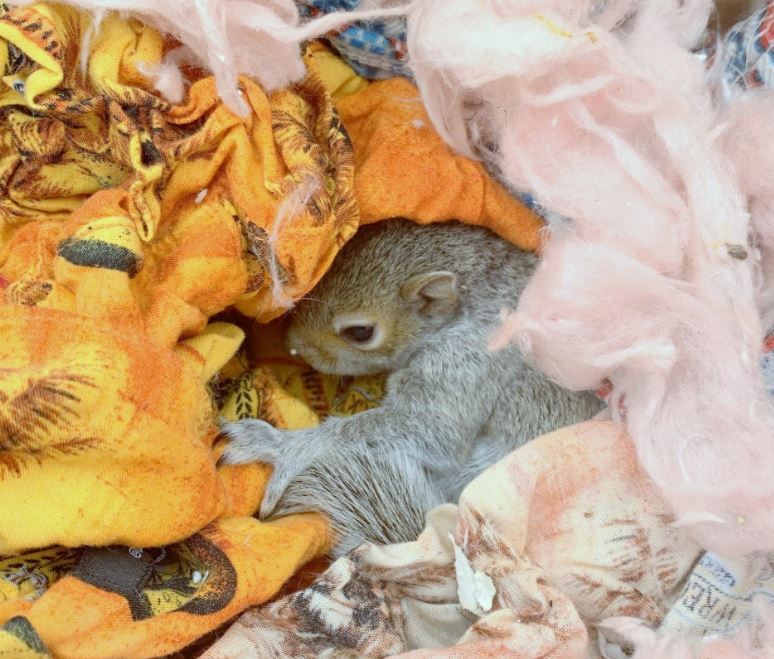Wildlife Removal New Hampshire

Call for Your Exclusive Wildlife Inspection Report.®
SQUIRREL REMOVAL
Squirrels look really cute from a distance, and many homeowners admire them in the environment and outside their yards. However, squirrels in a yard or home can be annoying and result in a lot of damages. Their activities cause harm to the homeowner, the structure, and the yard. Squirrels are animal pests that love to chew, and so they gnaw on cables, furniture, plumbing, and wiring systems, causing great losses to the homeowner.
For this reason, the presence of squirrels in a living space is unwelcome, and Wildlife X Team New Hampshire is the best professional team to evict and send them back to their natural habitat.
COST OF SQUIRREL REMOVAL
The cost of squirrel removal will be less if the squirrels infest areas outside the home as we can easily trap and remove them from your yard. However, if squirrels infest areas in your home like the attic, porch, chimney, and roof, the eviction will be more strenuous as we will have to inspect the house, seal the entry holes and remove squirrels and their colonies from your home. We will also clean up the mess that the squirrels leave behind.
It is easier to trap squirrels as most states have laws supporting the humane trapping and removal of squirrels. Squirrels produce offspring every year and love quiet, dark, and warm places, and these just happen to be areas within your home.
PROBLEMS THAT SQUIRRELS COMMONLY CAUSE
- Squirrels damage plumbing and wiring systems.
- They serve as vectors and intermediate hosts of many disease pathogens.
- Squirrels steal food from every source. These include the storeroom, pet food, garbage can, and crops in the garden.
HOW TO EVICT SQUIRRELS FROM YOUR YARD AND HOME
There are various methods you can employ to evict squirrels from your spaces. Some of these include:
● USING SQUIRREL TRAPS AND CAGES: Different squirrel traps are available on the market that you can successfully use for squirrel capture. However, you must employ the services of professionals like us at Wildlife X Team to do this right. You must also consider the state laws that concern wildlife capture and transfer and adhere to them to avoid legal actions. The professionals at Wildlife X Team New Hampshire are aware of these laws, and all our services revolve around the state’s animal rights laws.
You can use box cages to trap these critters by placing the cages at the entry and exit points. The cage locks automatically after the squirrel enters it and aids you to safely relocate and transport the squirrel from your house.
Be careful when handling trapped squirrels as they become antsy when in confinement and bite or scratch when trapped. Wear protective clothing when handling squirrels and always work with a professional.
● REMOVE SQUIRREL ATTRACTANTS FROM YOUR HOME: Squirrels love a wide variety of food, fruits, and junk. The presence of these in your space attracts squirrels to your home, and when they find a food source, they are difficult to get rid of. Your best bet is the removal of these plants and food. Also, keep your yard clean, dispose of any food remnants, and feed your pet animals indoors to keep squirrels away.
● SQUIRREL EXCLUSION: Wildlife X Team New Hampshire has professionals that can advise you on squirrel exclusion techniques like fencing, sealing holes, and covering vents with chicken wire mesh.
Both squirrel removal from yards and homes requires expertise, experience, skills, and suitable equipment for successful service. Wildlife X Team offers professional services to New Hampshire and surrounding areas that include squirrel removal, and the cleanup of droppings, urine, and food remnants that the squirrel leaves behind. We also decontaminate the attic and repair damages that the squirrels may have caused.
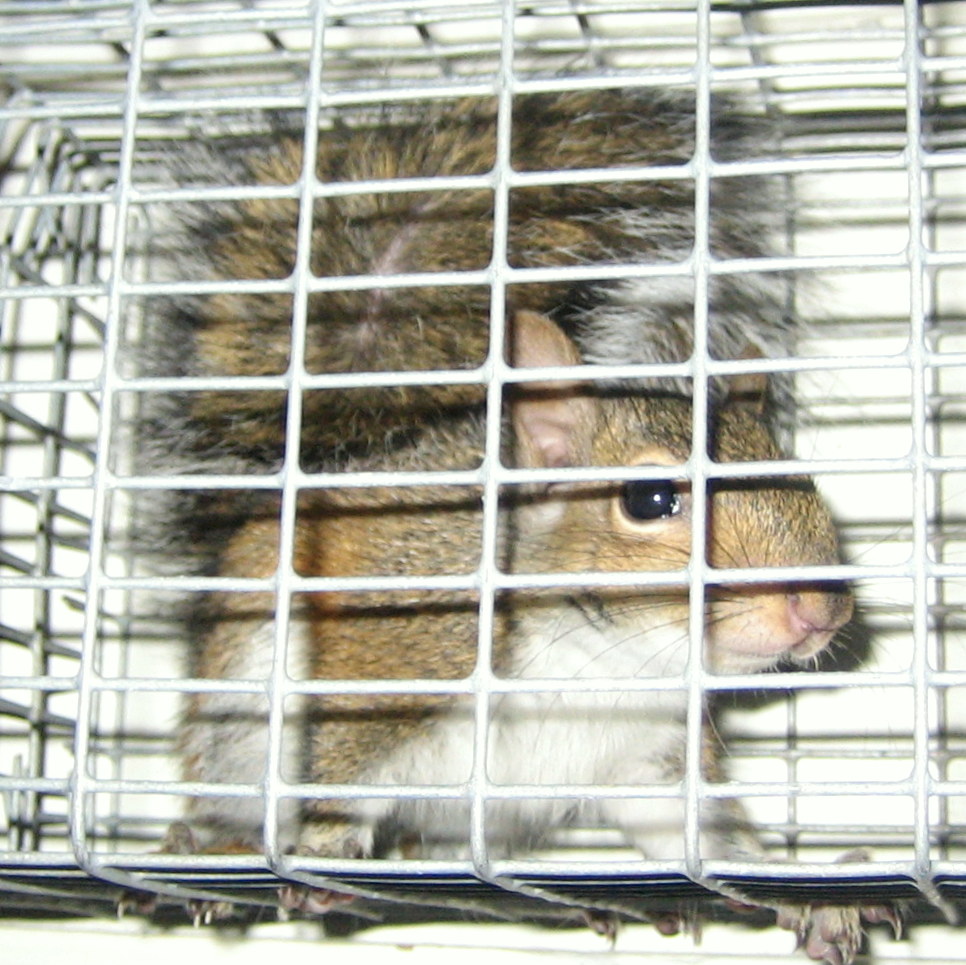
How to Get Squirrels Out Of The Chimney
Chimneys are among the most favored spots of a home for wild animals to nest in. why? Well, unless your chimney is capped and secured, it’s one area of the house that’s easily accessible. However, that can pose a serious threat to you and your family. How so? If squirrels (or any other animal) are nesting in your chimney, their nesting materials like twigs, leaves and so on, not to mention the squirrels themselves can constitute a fire hazard, if you’re actively using your fireplace. If these catch fire inside your chimney, the whole house could go up in flames. On top of that, squirrels are exposing you and yours to a wide range of diseases and potential health hazards, through their mere presence. Here is a great source at pestcontrolsquirrel.com to learn more about squirrel removal.
So you want to get them out of the chimney as swiftly as possible, and we’re here to tell you how you can do that.
Try scaring them.
Squirrels, like many other wild animals, don’t really appreciate loud noises. So a good way to get them to leave your chimney might be to bang pots and pans, and make other loud noises near the chimney, so as to frighten them. It may sound mean, but it’s a whole lot better than starting a fire right under their butts, trust us. You could also use a loud radio or speaker to scare them out of there.
You can attempt live-trapping.
If the squirrels aren’t getting scared by your noise-making, another option may be to live trap them. This is a humane alternative to more traditional trapping procedures. Usually, a live trap will involve a cage that you lure the squirrel into by use of some sort of bait, like peanut butter. The cage contains motion-activated plates that once triggered will force the door to the cage to fall shut, trapping the squirrel inside.
You can try placing these on the roof, near the chimney mouth, where it will be on the squirrel’s natural path. Live traps can be very effective for catching squirrels, as well as other bothersome wild animals.
However, if you do decide to use one, we suggest you check up on it regularly, so as not to leave the squirrel trapped scared without food or water for a long period of time. Once trapped, you can use the live trap to transport the squirrel and release it in a safe location.
If all else fails, call a professional.
There are numerous wildlife removal services out there, like Wildlife X Team New Hampshire, that will gladly take care of your squirrel problem for you. They will know what to do to remove the squirrels from your chimney swiftly, and without harming the animals. They can also offer disinfecting services, as well as repair the damage caused by the wild animals to your chimney and roof, usually.
So while calling a wildlife removal professional can be more costly, it’s often more efficient, as it gets more issues taken care of more quickly.
What do you do next?
Whatever you do, once you’ve gotten the squirrels out of your chimney, you’ll want to make sure this problem doesn’t crop up again. A good way to do this would be to mount a cap on your chimney. This will prevent squirrels as well as other wild animals from getting inside your chimney, and may also protect your chimney from rain, and other natural events.
Chimney caps are an effective method for protecting the insides of your chimney, and greatly reducing the risk of fire on your property, so we strongly suggest you get one.
Get Quote for Your Exclusive Wildlife Inspection Report.®



Wildlife X Team services New Hampshire and surrounding areas including:
Laconia, Meredith, Alton Bay, Alton, Ossipee, Center Harbor, Center Tuftonboro, Gilmanton, Gilmanton Iron Works, Holderness, Rumney, Lochmere, Loudon, Newfound Lake, Moultonborough, Gilford (Govt. Isl), Grafton, Plymouth, Andover, Danbury, Hebron, Tilton, Winnisquam, Ashland, New Hampton, Bristol, Salisbury, Wolfeboro Falls, Belmont, Hill, Bridgewater, New London, Sunapee, Wilmot, Wolfeboro, Holderness, Franklin, Squam Lake, Sanbornton, Lake Winnipesaukee, Sunapee Lake, and Silver Lake.
Our services are affordable, professional, and excellent. Visit our home office or place a call for more inquiries and service requests.
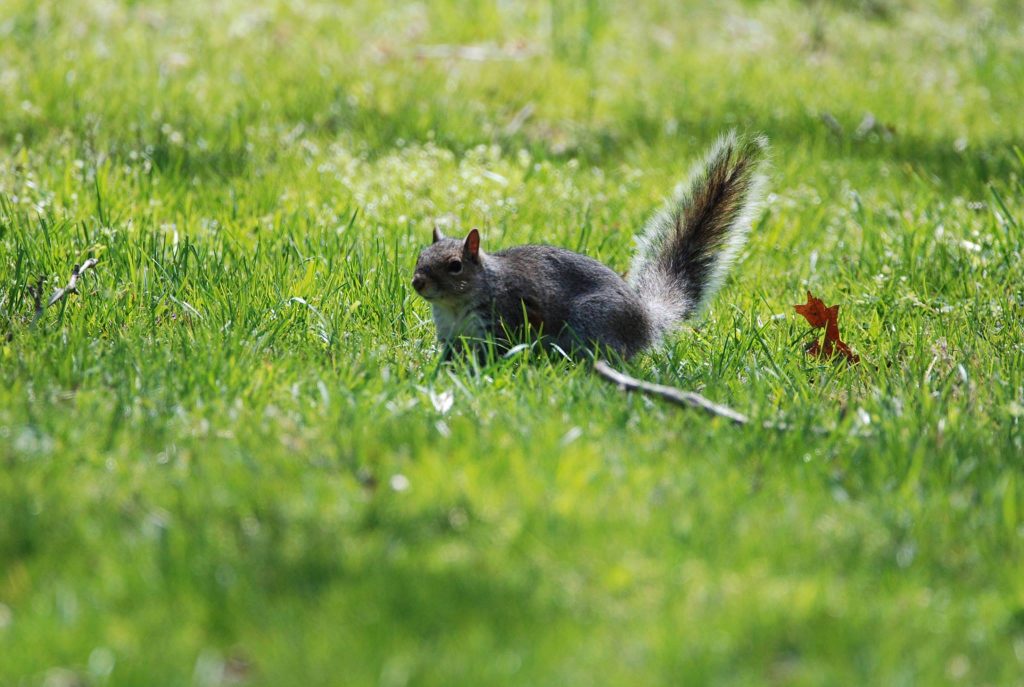
How To Get Squirrels Out of Attic
Having a Squirrel in your Attic is not as fun as you think. While these rodents can be fascinating to watch, the same is not said about the destruction they cause. Having squirrels in your home can be the first step on your journey to restlessness.
There is a lot to dislike about a Squirrel invasion, from the incessant chewing noises to their chirping sounds or dirt breeding fur. If you suffer a Squirrel invasion around your property, especially the Attic, you need to contact us.
Why do Squirrels choose your Attic?
The Attic is usually the favorite place for a squirrel to nest in your home. So, the next time you chase a squirrel and cannot find it, you should check the Attic.
Squirrels love your Attic most when;
- It is unused
Most people only keep their attics as a dump for old clothes, books, or other light utilities. However, this makes for a comfortable housing structure for squirrels. If you are not going to be using the Attic, you must clean it regularly.
- It has Large, cracked, and hidden spaces.
Although squirrels can live underground, in trees, or in woods, they still love ample space. The space affords them the freedom to build large “homes” and extra play spaces.
- Good store for their nuts
Storing their nuts before winter, squirrels often forget them, and they start to germinate from the soil underneath. However, if your Attic is close to a squirrel-invaded tree, they will consider it a good storage place for their nut.
Removing Squirrels from your Attic
To eliminate squirrels from the Attic, you must consider a long-term and effective plan. You must put extra measures to ensure they no longer return. An example is to make such places unfavorable for them in the future through repellants or scarecrows.
Some effective removal processes include;
- Start by inspection
You want to begin the removal stage with a comprehensive and total inspection of the Attic. Knowing that working at such heights may be dangerous, you may call professional services to go through with the process.
Your search should include tracing and scanning for any bits of;
- Fur,
- Nuts and remainders,
- Younglings
Also, you should search for holes or cracks that serve as their entrance/exit into the Attic. Of course, it is difficult for squirrels to reside in your Attic without access to these holes.
Once you block and correct any point of access or holes, the next step is to remove the existing colony.
Traps
Farmers and homeowners use various kinds of traps to contain the menace of squirrels. However, most of them are inhumane, unless live trapping.
Live trap involves tricking the animal through a method where they can only see one exit. Once the animal takes the bait, it will get blocked on both sides and can be transferred into a cage or bag. It is easier to resettle the animal in another habitat if they are captured alive and unharmed.
Other traps include;
- Glue traps,
- Net traps,
We understand that this process can be complicated, and that is why we recommend that you contact professional services.
Can you use Poisons and Repellents?
Poisons are a very gruesome way to deal with wildlife. And depending on the state laws, they are usually prohibited.
Also, it is hard to get a repellent that will continue to affect a squirrel for a long time. While they may be effective initially, the effects progressively wear off, and the Squirrels become immune to them.
Decontamination
Once all traces of Squirrels and their symbols are eradicated, it is time for you to decontaminate and “purify” the space they colonized. Squirrels can carry various parasites and germs and transfer them to your attics. And remember that It is always a better idea to hire a professional for your squirrel removal problem.
Call for Your Exclusive Wildlife Inspection Report.®

